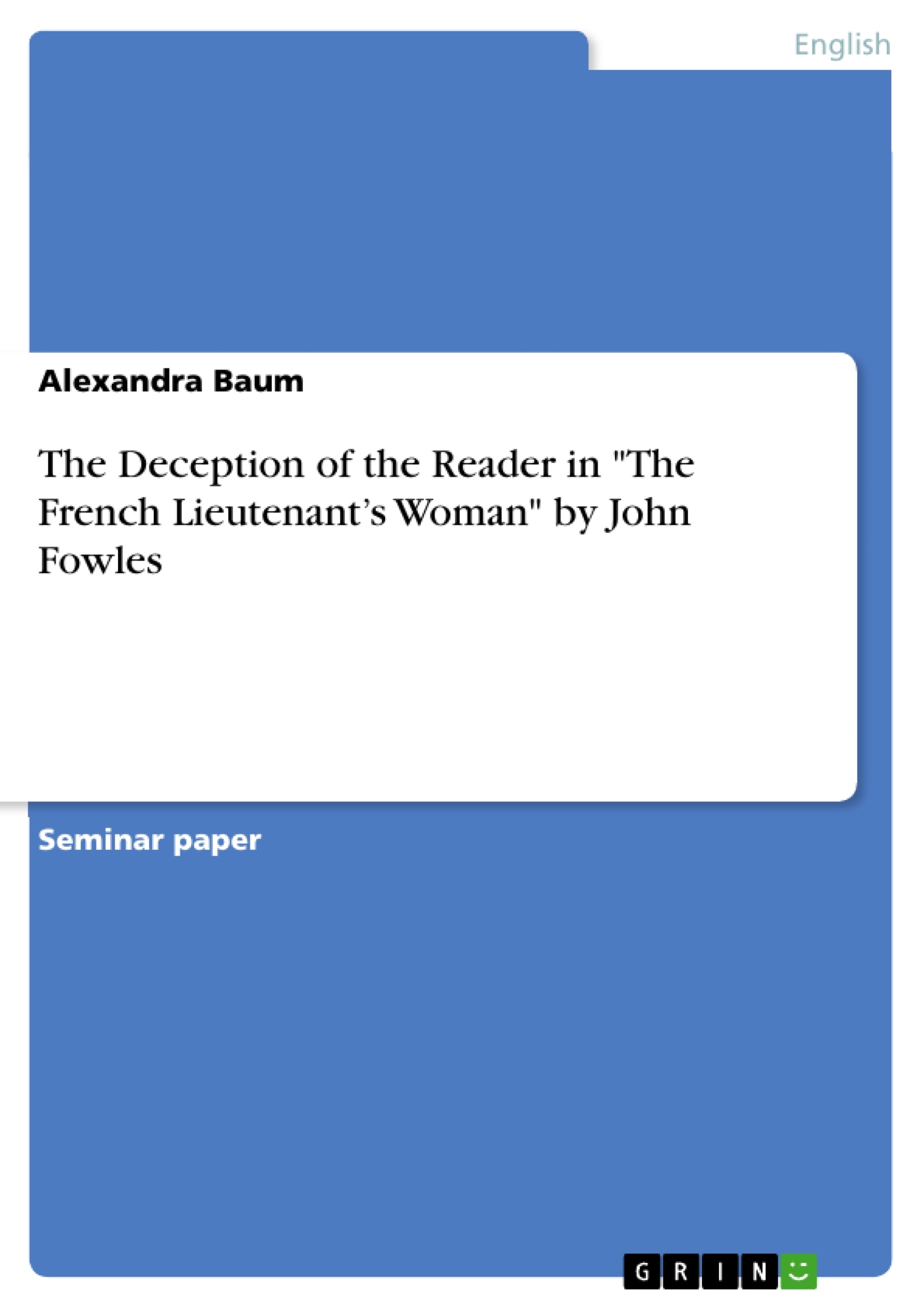John Fowles is a postmodern writer who was born March 31, 1926 in Leigh-on-Sea and who died in Lyme Regis, England in 2005. He was greatly inspired by the works of the French existentialists Albert Camus and Jean-Paul Sartre, which is often mirrored in his narrations. Fowles is one of the most well-known authors of Postwar British Fiction and has published his famous book (a pastiche of the Victorian novel) The French Lieutenant’s Woman, which has won several awards, in 1969. Due to its popularity the book has been made into a movie starring Meryl Streep and Jeremy Irons in 1981.
The novel takes place in Lyme Regis, England during the Victorian era in 1867 and is about the young gentleman Charles Smithson who, already engaged to a successful haberdasher’s daughter, falls in love with Sarah Woodruff, who is disdained by the society of Lyme Regis for her alleged affair with a French lieutenant.
John Fowles uses a postmodern narrator to tell a story that visibly has a very conventional Victorian framework. This narrator presents the love story of Charles and Sarah through a mixture of plot and personal comments by playing with the features of postmodern literature in order to deceive the reader and to challenge him into finding his own reality in the narration. The way the story is told shows a great interplay between the information the narrator gives to the reader and the information that is left out in order to mislead him. This technique therefore raises the question of how the reader is to understand the wholeness of John Fowles’s novel when he is deceived throughout its plot.
In this paper I am going to answer the question of how the reader is to understand the meaning of the book first, by giving a brief overview on Wolfgang Iser’s reader-response theory and its importance in the reading experience of The French Lieutenant’s Woman and second, by analyzing the different appearances of the narrator by using postmodern features like the creation of suspense, deception and illusion that Fowles used to manipulate the reader.
Inhaltsverzeichnis (Table of Contents)
- Introduction
- Wolfgang Iser's aesthetic-response criticism
- Deliberate deception and the narrator's appearance in The French Lieutenant's Woman
- Conclusion
Zielsetzung und Themenschwerpunkte (Objectives and Key Themes)
This paper examines how John Fowles employs a postmodern narrator in The French Lieutenant's Woman to manipulate the reader's perception of reality. The author utilizes techniques common in postmodern literature, such as suspense, deception, and illusion, to challenge the reader's interpretation and create a sense of ambiguity.
- The role of the reader in constructing meaning in a text
- The interplay between authorial intent and reader response
- The use of postmodern techniques to deceive and manipulate the reader
- The concept of "blanks" or "gaps" in a text and their impact on the reader's imagination
- The importance of active reading and reader participation in understanding a text
Zusammenfassung der Kapitel (Chapter Summaries)
The paper begins with an introduction to John Fowles's postmodern approach to storytelling and his use of a narrator who plays with the conventions of Victorian literature. The author then delves into Wolfgang Iser's reader-response theory, exploring the concept of the implied reader and the reader's role in constructing meaning within a text.
The paper then examines specific instances in The French Lieutenant's Woman where the narrator actively deceives the reader. The author analyzes how the narrator's interventions, such as interrupting the narrative flow and introducing elements of suspense and uncertainty, force the reader to actively engage with the text and develop their own interpretations.
The analysis concludes by highlighting the importance of the reader's imagination and active participation in understanding the text. The paper emphasizes the dynamic relationship between the text, the reader, and the narrator, highlighting how the reader's active involvement in filling the gaps within the narrative ultimately contributes to the overall meaning of the work.
Schlüsselwörter (Keywords)
This paper focuses on postmodern literature, reader-response theory, narrative deception, Wolfgang Iser, John Fowles, The French Lieutenant's Woman, Victorian novel, narrative gaps, implied reader, active reading, and the reader's role in constructing meaning.
- Quote paper
- Alexandra Baum (Author), 2014, The Deception of the Reader in "The French Lieutenant’s Woman" by John Fowles, Munich, GRIN Verlag, https://www.grin.com/document/286152




